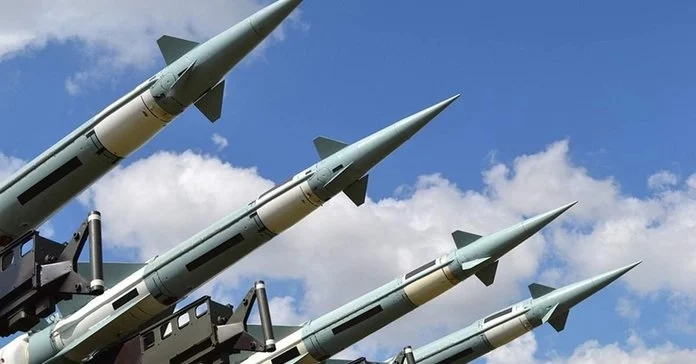A likely contender for the Republican presidential nomination, Florida governor Ron DeSantis, made the news when he characterized Vladimir Putin’s war in Ukraine as a mere territorial spat – a view with which former president Donald Trump seems to agree. While a good number of Republicans are condemning and distancing themselves from this view by emphasizing continued U.S. support for Ukraine, downplaying the conflict sends a dangerous signal to America’s adversaries.
After more than a year of Russia’s unprovoked attack that has led to scenes not seen in Europe in decades – the shelling of residential apartment buildings and homes, maternity wards and theaters, schools and churches; it goes without saying that these mass atrocities ought to be investigated as war crimes once Ukraine is victorious.
JOIN US ON TELEGRAM
Follow our coverage of the war on the @Kyivpost_official.
Since the Feb. 24 2022 invasion, it was obvious to astute observers and analysts that the strategies of Putin and his military were a continuation of the long tradition of Soviet and Russian rulers bent on territorial subjugation and national extermination. This is all too familiar to the nations of East Central Europe when it comes to understanding and better reacting to the threat that such imperialism poses to stability, security, and prosperity.
DeSantis’s position on the war in Ukraine plays directly into Putin’s schemes. In Putin’s eyes, translating this unprovoked, probably illegal war into a side-line event on Europe’s periphery suggests the Ukrainian question is simply internal Russian matter. By implication this turns all of those defending Ukraine’s territorial independence into what the Kremlin labels as outlaws, revolutionaries, fascists, and Nazis – epithets crucial for Putin to diminish the immense international support that Kyiv has thus far received.

Is the US Preparing to Reject Ukrainian Refugees?
The apparent public demotion of Putin’s war, by someone with ambition to be his main adversary’s next commander-in-chief, could give the self-styled “Tsar” a green light to continue disenfranchising Ukraine. Putin’s only measure of success will be if and when he can turn Kyiv from being an independent, west-leaning actor into just another Russian vassal. Failure would be a decisive set-back but Russian victory would merely whet Putin’s appetite for more.
Whatever the views of DeSantis and others like him, Ukraine achieving victory and a just peace can only be underpinned if the U.S. plays an active leadership role and supplies the country with what it needs to win. To do otherwise would open the door to international political paralysis that U.S. adversaries will not hesitate to take advantage elsewhere.
It’s evident that until the GOP nominates their candidate to challenge Biden in 2024, the position voiced by frontrunners like DeSantis and Trump on the one hand and Mike Pence, Mike Pompeo and Nikki Haley, to name a few, on the other, represent the opening rounds of the fight for the soul and future direction of the Republican Party.
We must not forget that the ‘America first’ agenda kept the U.S. isolated, allowing fascist powers to gain the initiative in global affairs. Their strength lay in a will to fight while the U.S. lacked the will to defend what it helped create. As the past teaches us, such a strategy will see the U.S. have to expend even more resources in future conflicts that threaten the interests of Washington and its allies rather than decrease them.
Like Ronald Reagan during the Cold War, American leaders and decision makers must now stand behind Ukraine and ensure, as he did, that Americans rediscover their core identity – opposing imperialism and leading the free world. Reagan and was convinced that the United States would never be great if makes compromises with imperialism and allows it to flourish.
Reagan wasn’t afraid to declare the ultimate objective in the showdown he led against Soviet imperialism – restoring freedom, which “is not the sole prerogative of a lucky few, but the inalienable and universal right of all human beings.” In today’s showdown with Putin, no U.S. leader should hesitate to do so either.
Pawel Markiewicz is a historian of 20th Century Central and Eastern Europe. He is executive director of the Polish Institute of International Affairs Office in Washington D.C. Follow him on Twitter @DrPMarkiewicz
Disclaimer
You can also highlight the text and press Ctrl + Enter











